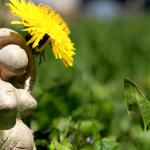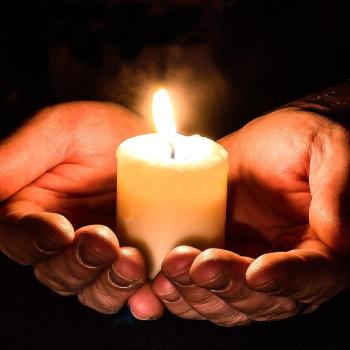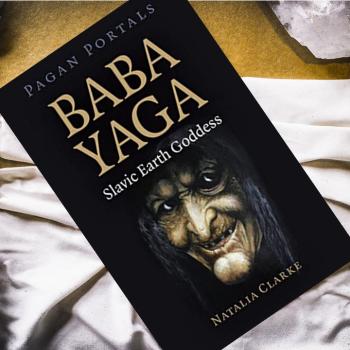When an Unfamiliar Deity Taps You on the Shoulder
Last September, I went to Greece to revel in its beauty but also to do research on Persephone, the sacred site of Eleusis, and the Oracle of Delphi. While I am primarily drawn to Celtic gods and goddesses, the first gods and goddesses I was exposed to as a child were Greek. I have long had a connection to Persephone as well as a fondness for others such as Aphrodite, Poseidon, Hecate and Athena. Being able to see the ruins of the Telesterion where the Mysteries took place, visit the site of the Pythia near Mount Parnassus and stand in close proximity to the Acropolis was a dream come true.
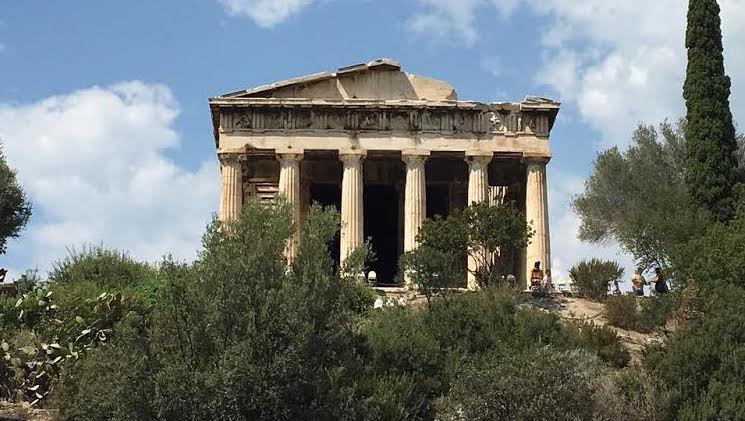
I expected to feel a sense of the sacred and a resonance at all of these sites and I wasn’t disappointed. Yet, I was taken by surprise when a Greek God- one I knew little about and didn’t seem to have much in common with- called out to me. My family and I were exploring a park near the center of Athens which contained ruins of temples and/or altars to many of the great Olympians as well as museums housing relics and works of great art. Many of the ruins in the park were so demolished it was difficult to envision what they had once looked like. In fact, an altar to Zeus had nothing left of it but a few bits of rubble and a sign marking the space. After a while, it all started to become a bit of a blur.
I had spied a temple in the park at the top of the hill which looked to be pretty well preserved (especially in comparison to the other ruins surrounding it) and began making my way up the hill to get a closer look. When I got to the top, my breath caught in my throat. I don’t know how best to describe what I felt other than awe, a strong wave of emotion, and a reluctance to ever leave. I was standing before the Temple of Hephaestus.
Built with marble in the Doric style, the temple is believed to have been constructed around 450 BC. It is surrounded by a garden lush with pomegranates, myrtle, and laurel and is believed to be the most well preserved ancient temple in Greece. Of course, I had heard of Hephaestus but knew little about him other than that he was the husband of Aphrodite, that he was a blacksmith, and that he had a disability. I walked around the perimeter of the temple, taking in the majestic columns, the marble floors, and the rays of light that shone down through the openings in the ceiling. I couldn’t seem to tear myself away.
I stood there, brought to tears by something I couldn’t explain. Surely, it must simply be my reaction to the beauty of the temple, right? After all, what could I possibly have in common with Hephaestus? I was no blacksmith-far from it. I was horrible at any kind of artsy crafty things and couldn’t even manage to draw a recognizable stick figure! Furthermore, I typically was drawn to goddesses and rarely found myself working closely with a god. As I reluctantly pulled myself away from the temple and descended the stairs down the hill I chalked up my experience to an appreciation of artistic excellence and decided to forget all about the god to whom the temple was dedicated.
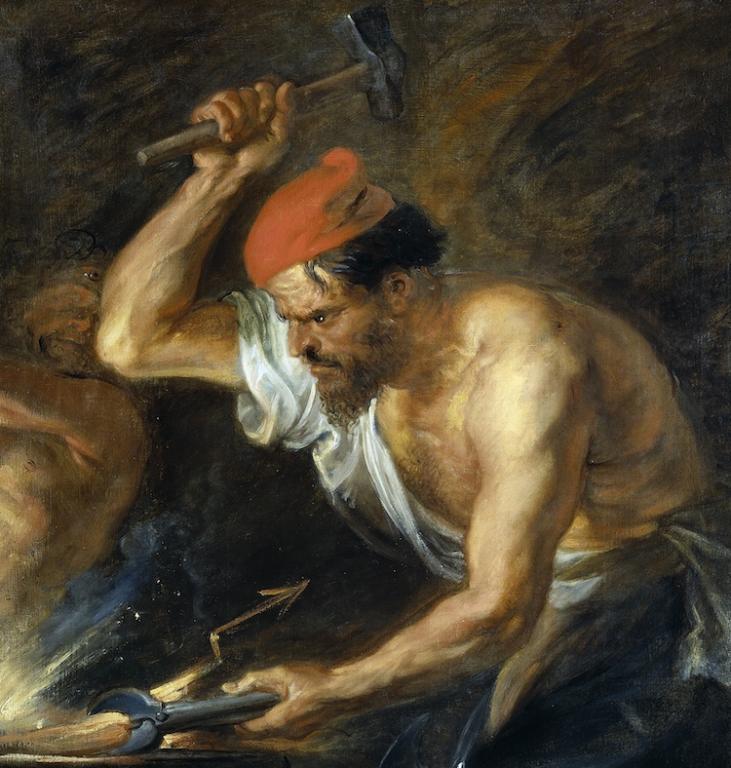
But as often is the case when an unfamiliar god/dess taps us on the shoulder, Hephaestus had other plans.
We moved on to the museum in another section of the park and it seemed that every angle at which I stood positioned me perfectly to view the temple in the distance. In my efforts to conduct research for a book I was writing on Persephone, I read everything I could get my hands on about the goddess and her myth. For whatever reason, Hephaestus continued to pop up again and again in my readings. At night, I would dream of fire, of the temple, and of a dark, brooding man standing over a forge, crafting something I couldn’t see. By day, as I meandered through cobblestone streets with what seemed like endless souvenir shops hawking statuettes, I would inevitably find myself standing in front of a shelf with an alabaster representation of Hephaestus staring back at me.
I finally gave in and succumbed to his call. Back home, I created an altar to him with a small statue of Hephaestus that I had purchased in Athens. I realized as I began to embrace Hephaestus that we actually had more in common than I thought. While I don’t have a lame leg, I do have a rare medical condition that left me feeling fragile when I was younger. I was physically tiny and weak and often discounted my own abilities as did others. I was underestimated and at times I resented this. I was, however, very talented and creative. While I did not make things with my hands, I was quite competent at creating entire worlds in my mind out of thin air.

All of this left me feeling a kinship to Hephaestus that I would never have imagined. As I began working with him, I realized that the timing of our introduction could not have been more perfect. For while I do not possess the skills of the blacksmith, the creative spark born of the forge is something that I do resonate with and is something that I needed to cultivate when I returned from Greece. Getting in touch with my inner Hephaestus helped me to forge a book proposal which ultimately resulted in a contract for a book about Persephone with a publisher I admire.
Certainly, one should always proceed with caution when encountering a deity that one isn’t particularly familiar with. And, of course, we always have the ability to not respond to that tap on our shoulder. Yet if you find that you have a strong reaction to the call as I did and despite your stubbornness the god/dess you encountered won’t leave you alone, I would encourage you to take a moment to stop, introduce yourself to the stranger, and hear them out. You never know; what was once a stranger may end up becoming a beloved mentor, ally, and friend.



